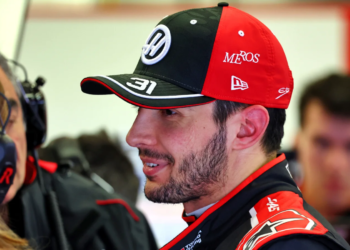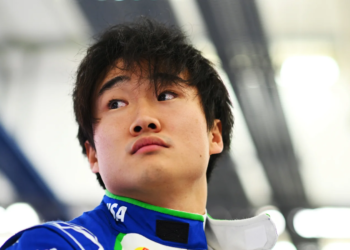The outcome of Formula 1’s Canadian Grand Prix should act as a “wake-up call” for Mercedes, according to team boss Toto Wolff.
Mercedes took a comfortable 1-2 finish in 2017, the third year in a row it triumphed at the race, and expected its W09 to suit the characteristics of the Circuit Gilles Villeneuve, compared to the previous event in Monaco.
Mercedes’ prospects, though, were dealt a blow during the build-up to the event when it was confirmed that its planned PU2 engine update would not be ready in time, instead delayed until France.
Valtteri Bottas took a fine second place, behind Sebastian Vettel, while an engine issue hurt Lewis Hamilton’s chances in race trim, as he lost position to Daniel Ricciardo and wound up fifth.
Mercedes still leads the Constructors’ Championship, albeit its advantage over Ferrari reduced to 17 points, and Wolff says its result at a historically strong venue should serve as a warning.
“This has been a tricky weekend for us, with Ferrari showing they had the quickest car in qualifying and in the race,” said Wolff.
“We came to Montreal expecting to perform strongly and the result is a further lesson to us that the historic patterns of performance between the teams are not holding true this year.
“It is very hard to see a trend from circuit to circuit, and the race results are being decided by tight margins – which team makes the fewest mistakes, develops its chassis and power unit most effectively, finds the right balance between performance and reliability, and puts together their race weekend cleanly from Friday onwards.
“The fastest laps table showed three teams within 0.15s and this is the new reality of 2018.
“It has been a tough weekend for us – tougher than we expected – and this result is a wake-up call for everybody in the team.
“We now need to reflect in the right way, understand where we can find more performance and respond in Paul Ricard in two weeks' time.”
Expanding on the respective races from his drivers, Wolff commented: "Valtteri got a good start then defended extremely well from [Max] Verstappen in the first two corners.
"We never had the pace to challenge Sebastian, but that move was the basis for his P2 finish. After this, he raced hard, hardly put a foot wrong but we didn't have the pace for any more.
"On Lewis' side, we had an issue with a chassis component that compromised his cooling from the opening lap. That meant the engine was running hot and we had to manage temperatures, costing performance, in the opening stint.
"We were able to open up the bodywork at the pit-stop to improve the situation, but also lost a place to Ricciardo that we were unable to get back during the next 50 laps."






